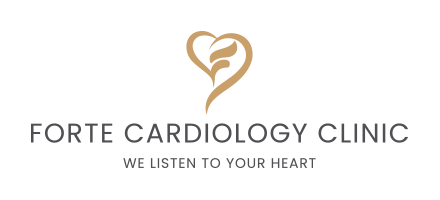Giddiness, characterised by a sensation of lightheadedness or dizziness, can significantly impact an individual’s daily life. Understanding its significance is crucial, as it may be a warning sign of underlying health issues.
Giddiness is often intricately linked to cardiovascular health. The circulatory system’s role in supplying oxygen to vital organs, including the brain, underscores the importance of exploring the connection between giddiness and cardiovascular well-being.
Overview of Blood Circulation
The cardiovascular system, comprising the heart, blood vessels, and blood, orchestrates a complex network facilitating the circulation of oxygen and nutrients throughout the body. An understanding of this intricate system is fundamental to grasping the factors influencing giddiness.
The Role of Blood Vessels in Oxygen Delivery
Blood vessels, including arteries and veins, are crucial in delivering oxygen to various tissues, particularly the brain. Any compromise in blood flow, whether due to vessel constriction, blockages, or other cardiovascular issues, may contribute to giddiness.
Connection Between Blood Flow and Giddiness
Giddiness can arise when there is an imbalance in blood flow to the brain. Factors such as inadequate oxygen supply, irregular blood pressure, or inefficient circulation may lead to this unsettling sensation. Exploring this connection allows us to unravel the potential cardiovascular origins of giddiness.
Common Heart Conditions Associated with Giddiness
Hypertension
Giddiness can be a symptom of hypertension or high blood pressure. Elevated blood pressure can strain the cardiovascular system, impacting blood flow to the brain and leading to feelings of lightheadedness.
Orthostatic Hypotension
Orthostatic hypotension refers to a drop in blood pressure upon standing up. When this drop is significant, it can result in giddiness or even fainting. This condition may be associated with various heart-related issues.
Heart Valve Disorders
Disorders affecting heart valves, such as stenosis or regurgitation, can disrupt the normal flow of blood within the heart. This disturbance in blood flow may contribute to giddiness, especially during physical exertion.
Non-cardiac Causes of Giddiness
Inner Ear Disorders
Giddiness can be linked to inner ear disorders, such as vestibular disorders or Meniere’s disease. These conditions affect the body’s balance system and may result in sensations of dizziness.
Dehydration
Inadequate fluid levels in the body can lead to dehydration, affecting blood volume and blood pressure. Low blood pressure from dehydration can result in giddiness and should be addressed by ensuring proper hydration.
Symptoms and Characteristics of Giddiness with Cardiac Causes
It’s important to note that these symptoms may vary in intensity and presentation, and not everyone with cardiac-related giddiness will experience all of these characteristics.
Lightheadedness – Individuals experiencing giddiness with cardiac origins often describe a sensation of lightheadedness, as if they might faint. This feeling may be intermittent or persistent.
Dizziness – A sense of unsteadiness or spinning can accompany cardiac-related giddiness. It may be triggered or exacerbated by changes in body position or physical exertion.
Palpitations – Palpitations, or irregular heartbeats, may be felt as a fluttering or rapid heartbeat. Cardiac arrhythmias or disturbances in heart rhythm can contribute to giddiness.
Chest Discomfort – Giddiness associated with cardiac causes may accompany chest discomfort or tightness. This could be indicative of underlying heart issues, such as angina or myocardial infarction.
Shortness of Breath – Giddiness linked to cardiac conditions may coincide with shortness of breath. Reduced cardiac output or heart failure can lead to inadequate oxygen supply, resulting in breathlessness.
Sweating – Profuse sweating, mainly when not attributed to external factors like exercise or heat, may indicate cardiac-related giddiness. The body may respond to the cardiovascular strain with increased perspiration.
Nausea or Vomiting – Giddiness accompanied by nausea or vomiting may suggest cardiac involvement. This combination of symptoms could indicate compromised blood flow to vital organs.
Fainting (Syncope) – In severe cases, cardiac-related giddiness may progress to fainting episodes (syncope). This is particularly concerning and requires immediate medical attention.
Cyanosis – Bluish skin discolouration, especially noticeable in the lips or fingertips, may indicate insufficient oxygenation, pointing to potential cardiac causes of giddiness.
Exertional Symptoms – Giddiness triggered or worsened by physical activity or exertion may be a sign of coronary artery disease or other heart-related issues.
Irregular Blood Pressure – Fluctuations in blood pressure, including episodes of low blood pressure (hypotension) or high blood pressure (hypertension), can contribute to giddiness in cardiac conditions.
When to Seek Medical Attention
Knowing when to seek medical attention for giddiness, especially when suspected to have cardiac causes, is crucial for prompt evaluation and appropriate management. Individuals experiencing the following symptoms should seek immediate medical help:
Chest Pain or Discomfort – If giddiness is accompanied by chest pain, tightness, or discomfort, it may indicate a cardiac issue such as angina or a heart attack. Seek emergency medical attention without delay.
Shortness of Breath – Giddiness coupled with difficulty breathing, especially if it comes on suddenly or is severe, could be a sign of heart failure or other serious cardiovascular conditions requiring immediate medical intervention.
Fainting (Syncope) – If giddiness progresses to fainting (loss of consciousness), it is a critical situation that demands urgent medical attention. It may be indicative of a severe cardiac event or arrhythmia.
Irregular Heartbeat – Palpitations or irregular heartbeats accompanying giddiness warrant medical evaluation. Arrhythmias or disturbances in heart rhythm may pose serious risks and need prompt attention.
Severe or Persistent Symptoms – If giddiness is severe, persistent, or worsening, particularly if it is associated with other concerning symptoms, it requires immediate medical assessment to determine the underlying cause.
Bluish Discoloration of Skin (Cyanosis) – Bluish discolouration of the lips, fingertips, or skin may indicate inadequate blood oxygenation and should be addressed urgently.
Signs of Stroke – Symptoms such as sudden weakness or numbness on one side of the body, slurred speech, or difficulty understanding speech may accompany giddiness and could indicate a stroke. Immediate medical attention is crucial.
History of Heart Disease – Individuals with a history of heart disease or known cardiac issues experiencing giddiness should seek medical evaluation promptly, as it may indicate worsening their condition.
High or Low Blood Pressure Episodes – Episodes of high blood pressure (hypertension) or low blood pressure (hypotension) contributing to giddiness require medical attention to identify and address the underlying cause.
Sudden, Severe Headache – If a sudden and severe headache accompanies giddiness, it may indicate a serious cardiovascular issue or other medical emergency, and immediate medical attention is warranted.
Diagnostic Tests and Procedures
Diagnostic tests and procedures are vital in identifying the underlying causes of giddiness, particularly when cardiac issues are suspected. The specific tests ordered may depend on the clinical presentation and the healthcare provider’s assessment. Standard diagnostic tests include:
Electrocardiogram (ECG or EKG) – This non-invasive test records the heart’s electrical activity. It helps identify abnormal heart rhythms, ischemia (lack of blood flow to the heart), and other cardiac abnormalities.
Holter Monitor – A portable device worn by the patient for 24 to 48 hours, continuously recording the heart’s electrical activity. It helps capture intermittent cardiac issues that may not be evident during a short-term ECG.
Echocardiogram – A heart ultrasound that provides detailed images of its structure and function. This test can reveal heart valve disorders, cardiac chamber enlargement, or reduced cardiac function.
Cardiac Stress Test – This test evaluates how the heart performs under stress, often through physical exercise or medication that stimulates the heart. It helps assess cardiac function, blood flow, and potential abnormalities.
Blood Pressure Monitoring – Continuous or ambulatory blood pressure monitoring may be recommended to assess variations in blood pressure over 24 hours, especially if orthostatic hypotension is suspected.
Blood Tests – Various blood tests may be conducted to assess cardiac markers, electrolyte levels, cholesterol levels, and other indicators of cardiac health.
Tilt Table Test – This test is performed to evaluate orthostatic hypotension. The patient is tilted on a table, and changes in heart rate and blood pressure are monitored as the table position changes.
MRI (Magnetic Resonance Imaging) – Cardiac MRI provides detailed images of the heart, helping to assess its structure and function. It is particularly useful for evaluating cardiac anatomy and detecting abnormalities.
CT (Computed Tomography) Angiography – CT angiography can visualise the coronary arteries and assess for any blockages or abnormalities in blood vessels supplying the heart.
Carotid Ultrasound – This test uses ultrasound to assess the blood flow in the carotid arteries, which supply blood to the brain. It helps identify potential blockages or abnormalities that could contribute to giddiness.
Ambulatory ECG Monitoring (Event Recorder) – Similar to a Holter monitor, the patient wears an event recorder for an extended period, typically weeks to months. It allows for recording and capturing specific events when symptoms occur.
Ergonovine Test – This provocative test involves administering ergonovine to trigger coronary artery spasms, helping diagnose conditions like variant angina.







